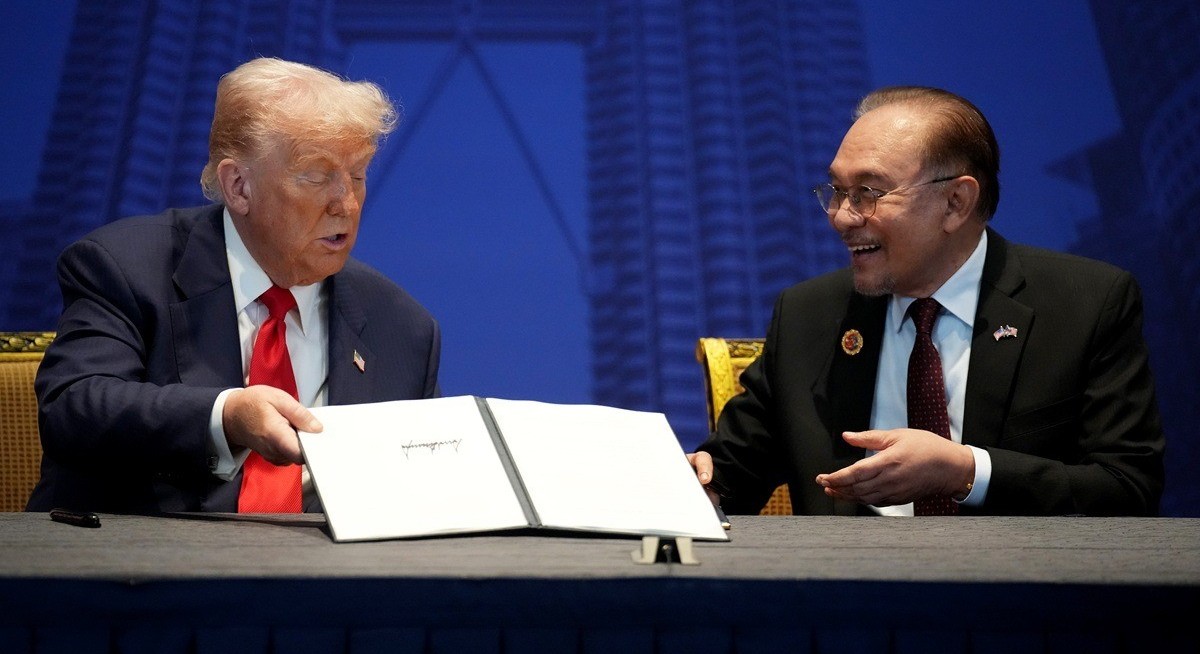The readout added that officials from the Malaysia’s Ministry of Investment, Trade and Industry (Miti) explained and clarified the issues of China’s concerns, without elaborating on what those are.
The meeting follows a similar sitdown between Chinese and Cambodian officials last Tuesday, where China’s trade envoy Li Chenggang also urged Phnom Penh to handle concerns and the Cambodians clarified some issues.
China’s Commerce Ministry didn’t respond to a request for further details. Malaysia’s Trade Ministry and Cambodia’s government spokesperson didn’t reply to a request for comment.
Both deals, signed last month during US President Donald Trump’s visit to Malaysia, include language that encourages the countries to align with Washington on national security issues, including export controls, investment screening and sanctions. Beijing has repeatedly warned countries against signing deals with the US that undermine its interests, but this appears to be the first instance of direct complaint.
See also: Bank Of England’s Mann says China is raising export prices due to US tariffs
The public criticisms demonstrate the tight space Southeast Asian nations navigate between the world’s two largest economies. China is a key economic and trade partner, but Trump’s tariff threats have forced countries to make more trade concessions and investment deals with the US.
The deals were part of a flurry of trade pacts unveiled last month during Trump’s first Asia tour since he was re-elected, including with Vietnam, and Thailand. As part of its deal, Kuala Lumpur will provide preferential access for US goods and services, while the White House exempted some Malaysian goods from Trump’s 19% reciprocal tariffs.
But also under the agreement, Malaysia is expected to follow Washington’s trade restrictions on countries for economic or national security reasons. It also commits Malaysia to align with US export controls and sanctions on sensitive technologies, and to prevent its companies from helping others circumvent those measures.
See also: US rare earth buyers still see China curbs despite deal with Trump
Malaysia should also explore a mechanism to review inbound investment for national security risks, including in relation to critical minerals and critical infrastructure.
For Cambodia, the pact affirms that the country will drop all tariffs on US food and agricultural imports, as well as industrial products. In exchange, the White House identified hundreds of goods it planned to exempt from its 19% tariff.
Similar to Malaysia, Cambodia is required to comply with the US export control regime and so-called entity list of banned firms. In addition, it will cooperate with any US request for information about investment activity by third countries.
Both Malaysia and Cambodia will also enhance defence trade with the US, and promise to crack down on transshipment of goods, the agreements show.
Read also:
Malaysia has no plans to renegotiate US trade deal, says Zafrul
Uploaded by Liza Shireen Koshy




